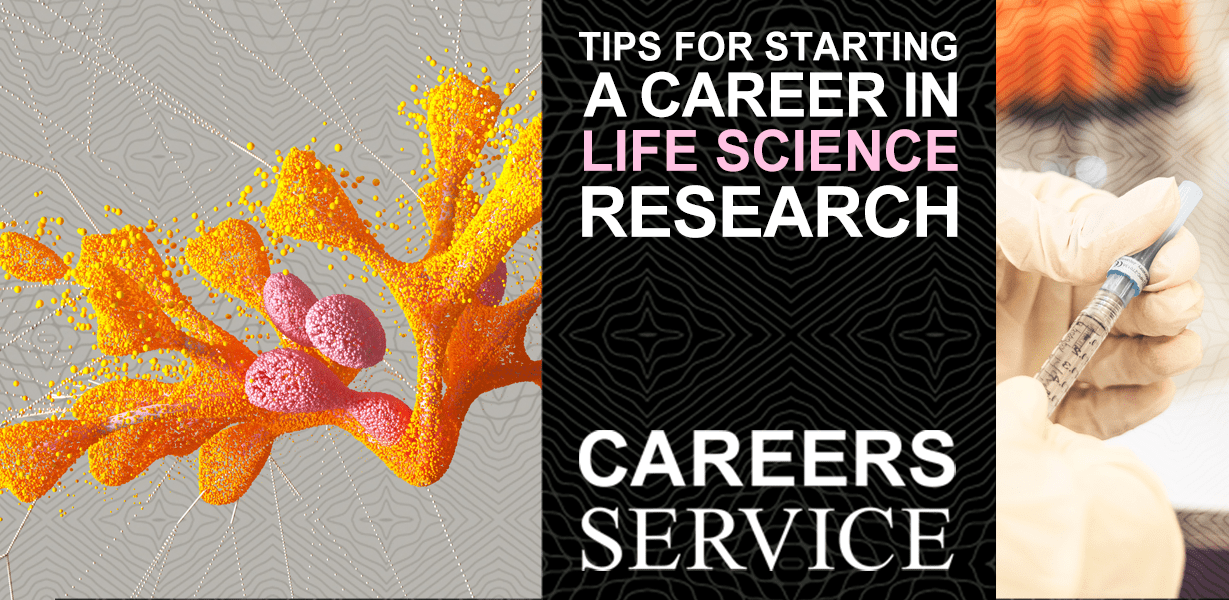Our Careers Consultants share top tips from the One Nucleus Building Life Science Adventures conference for students, researchers and graduates looking to kickstart a research career in the sector
The conference provided an opportunity to hear representatives from organisations in the sector talk about topics including skills and qualifications, reimagining recruitment and the growth of AI and data and how these influence hiring decisions and opportunities in life science research.
1. You’ll need to evidence a combination of qualifications, technical and transferable skills in the recruitment process.
Whatever your level of study, your formal qualifications help recruiters and hiring managers to get a sense of your knowledge and baseline technical expertise. The panel highlighted the need for candidates to demonstrate how they’ve applied their knowledge, technical and transferable skills gained in their qualifications. If you’ve done a PhD or a research project, talk in detail about the techniques you used and how you used them but don’t forget to evidence transferable skills such as team work, communication, problem solving, project management and more too!
The panel were keen to share that many organisations are bringing back internship and placement schemes that were paused during the Covid-19 restrictions to enable applicants to gain valuable real-world experience. If you have an opportunity to apply your knowledge and skills in a commercial context, through an internship or collaboration, this will strengthen your application.
The value of extra-curricular activities for candidates was also emphasised as helping recruiters to gain a more holistic picture of the applicant. Getting involved in extra-curriculars enables candidates to show that they’re motivated, proactive and evidence interpersonal and transferable skills that are key to working in industry.
2. Employer requirements are often guided by what’s going on in their organisation
Panellists recognised that many job-seekers express frustration about adverts asking for specific requirements or experience. Employers are keen to hire for potential, but this is possible only when they have the capacity and people in house to provide support and training for new hires. Over 95% of businesses in the sector are SMEs (small and medium enterprises). These smaller organisations, particularly new start-ups or those in a period of rapid growth, may need to be specific about their job requirements to meet their immediate business needs, whereas established organisations in a more stable position are more likely to have the capacity to provide support and training. The panel highlighted that doesn’t mean you can’t reach out, this has often prompted organisations to consider how they can offer opportunities and the panellists have gone back to people when they’re in a better position to do so!
3. You may need to be flexible about roles at the start of your career
Panellists encouraged those starting their career to take a flexible approach rather than looking for the ‘perfect’ role. Many organisations are looking at ways they can develop and retain talent so getting a foot in the door will build experience and may enable you to access training to facilitate sideways moves to roles more suited to your interests. Outside of industry, one year research assistant roles were highlighted as another way to build valuable experience.
4. Don’t be afraid to speak to people in the sector
An overarching message from the conference was that if you want to better understand what you need to get into a role and how to market yourself to employers, many in the field would be happy to have an informal conversation to help you with this. Employers on the panels were open to receiving speculative approaches from those seeking experience and positively encouraged this approach. Employers acknowledged that reaching out isn’t always easy so make use of our resources to help you:
Find and talk to Cambridge alumni working in the sector through Alumni Careers Connect, or check out our video on finding alumni on LinkedIn
Use our video on speculative approaches to get started with sourcing opportunities!
5. Computational, statistical, data skills, digital literacy and an understanding of the ethical implications of AI are highly valued!
Mirroring the recent Association of the British Pharmaceutical Industry Bridging the Skills Gap 2022 report, there was an emphasis on the need for computational and data skills in the life science industry, regardless of the type of research you wish to undertake.
Starting to learn some coding independently is easier than ever, due to the increasing amount of free online courses and tutorials. Check out the ‘how to find employers or training courses’ section of our IT Sector Page for lots of ideas of how you can develop these valuable skills flexibly and often, for free.
The use of AI in life science research continues to grow, and it’s important that those starting their career have an understanding of the ethical implications and what they mean in practice. To get you started in exploring this further, check out our video with Daniel Chappell, Clinical Trials Project Manager who talks about the growth of AI in clinical trials research or read this article from LEK Consulting which outlines the potential of AI and issues for pharmaceutical companies to tackle.

